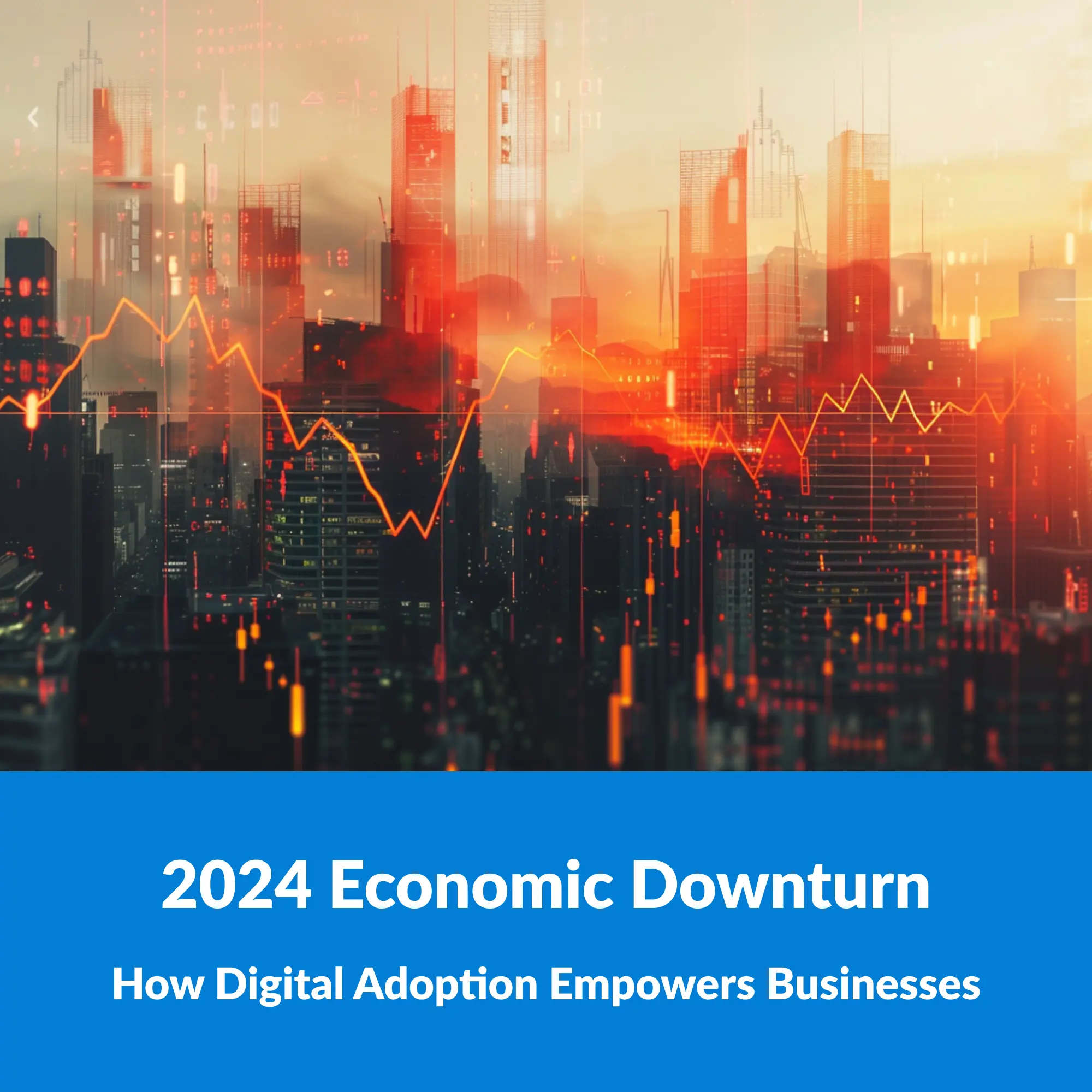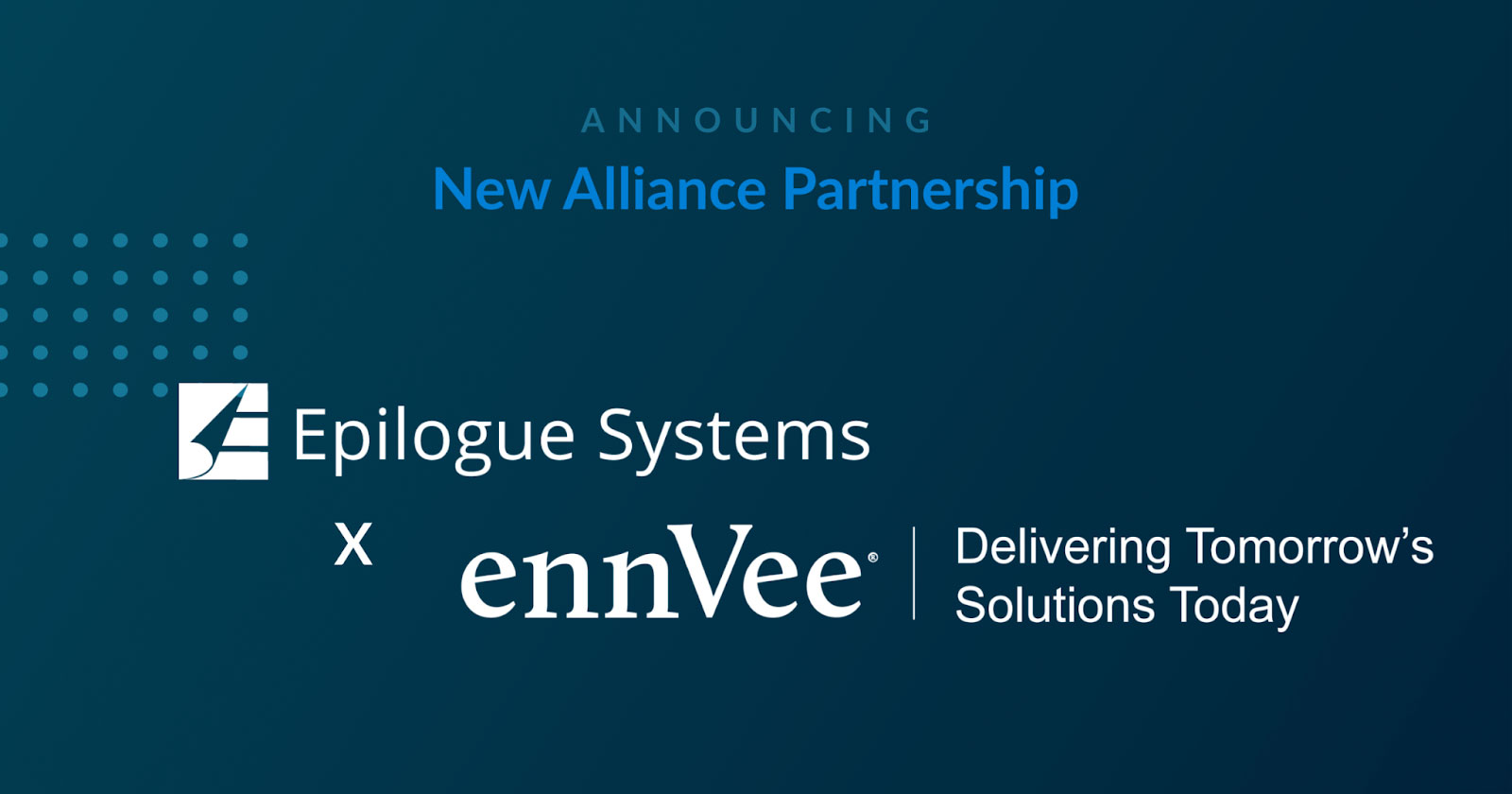In 2024, the business world is navigating a sea of uncertainty, with waves of layoffs and budget constraints crashing down on industries ranging from tech to retail. As companies grapple with these challenges, a beacon of hope shines through the storm: digital adoption. This blog post delves deep into the current economic climate, examining the extensive layoffs sweeping across major corporations, and explores how embracing digital transformation can serve as a lifeline for businesses striving to weather this tempestuous period.
Economic Turbulence 2024: A Closer Look at Widespread Layoffs
The economic narrative of 2024 is marked by a continuation and intensification of the previous year’s challenges, casting long shadows over the global economic landscape. Layoffs, a prominent feature in this unfolding story, have not only persisted but expanded, touching some of the most influential players in the corporate world.
According to Business Insider 2024, significant corporations, including industry giants like Tesla, Google, Microsoft, Nike, and Amazon, have announced substantial workforce reductions as part of broader cost-cutting measures. These layoffs reflect a strategic shift as companies brace for what many anticipate to be a protracted economic slump. Tesla, for instance, has been making headlines not just for its innovations but also for its ongoing job cuts in 2024, signaling a tough year ahead.
The retail and finance sectors have not been spared either.
Noteworthy is Nike’s announcement during its December 2023 earnings call, where slow growth forecasts led to significant stock devaluation and subsequent layoffs as part of a broader $2 billion cost-reduction plan. Similarly, financial institutions like Citi and BlackRock have implemented sweeping layoffs as part of restructuring efforts aimed at streamlining operations and reducing costs in response to disappointing financial performances.
As we move deeper into 2024, the economic outlook remains bleak. Layoffs continue to ripple through various sectors, reinforcing the sense of urgency for businesses to adapt and rethink their strategies. This challenging period underscores the critical importance of resilience and innovation as companies across the globe strive to navigate an increasingly unpredictable economic environment.
Digital Transformation: A Lifeline in Economic Downturns
During economic downturns, companies face the dual challenge of maintaining productivity while simultaneously cutting costs. In such turbulent times, digital adoption emerges as a crucial strategy, providing businesses with the tools needed to navigate and overcome these challenges effectively.
Boosting Efficiency:
Integrating digital tools into business operations can significantly boost efficiency. Automation technologies can take over repetitive and time-consuming tasks, freeing up employees to focus on higher-value activities. For example, implementing robotic process automation (RPA) can handle routine data entry, scheduling, and other administrative tasks with greater speed and accuracy.
Streamlining processes through digital workflows also helps eliminate bottlenecks, reduce errors, and optimize resource allocation. By lightening the load on existing employees, companies can maintain high levels of productivity without the need for extensive additional hiring, thereby reducing operational costs.
Enabling Remote Work:
Layoffs and economic pressures can severely impact employee morale and productivity. Digital tools designed for communication, collaboration, project management, and real-time updates are essential in maintaining a cohesive and productive workforce.
Platforms like Zoom, Microsoft Teams, and Slack allow for seamless communication and collaboration among team members, regardless of their physical location. Project management tools like Asana, Trello, and Monday.com help keep track of tasks, deadlines, and responsibilities, ensuring that remote teams stay aligned and productive. These tools not only help sustain productivity but also foster a sense of connectedness and teamwork, which is crucial during periods of uncertainty.
Positioning for Growth:
Digital transformation is not solely about surviving economic downturns; it’s also about positioning for future growth. Businesses that invest in digital technologies are better equipped to scale operations, enter new markets, and innovate when the economy begins to recover. For instance, e-commerce platforms allow retailers to reach a global customer base, while cloud computing services provide the flexibility to scale IT resources up or down based on demand.
Additionally, digital marketing tools enable companies to target new customer segments with precision, driving growth even in challenging times. By becoming digitally adept, businesses can build a strong foundation for long-term success and competitiveness.
Data-Driven Decisions:
In a volatile economic environment, making informed decisions is more critical than ever. Advanced analytics tools provide real-time insights into market trends, customer behavior, and internal performance metrics. By leveraging big data and business intelligence platforms, companies can analyze vast amounts of data to identify patterns, predict future trends, and uncover new opportunities.
Tools like Tableau, Power BI, and Google Analytics enable leaders to make data-driven decisions that can help avoid potential pitfalls and capitalize on emerging market opportunities. This approach ensures that decisions are not based on guesswork but on solid, empirical evidence.
Beyond Survival:
Digital adoption is more than just a survival tactic; it is a strategic imperative that defines a company’s future trajectory. Embracing digital transformation equips businesses to be agile, resilient, and forward-thinking. This adaptability is crucial in a constantly evolving economic landscape. Companies that leverage digital technologies can quickly respond to changes in the market, customer needs, and competitive pressures.
Furthermore, digital transformation fosters a culture of continuous improvement and innovation, encouraging employees to develop new skills and embrace new ways of working. This cultural shift not only enhances current operations but also prepares the organization for future challenges and opportunities.
Epilogue Systems Opus: Demonstrating Digital Adoption in Action
This section examines how Epilogue Systems Opus articulates the value of its offerings during economic downturns and periods of layoffs.
Epilogue Systems Opus stands out as a leader in optimizing employee performance through effective knowledge transfer and workflow documentation. Their platform plays a vital role in preserving institutional knowledge and sustaining operational stability during periods of economic downturns and layoffs.
As we move deeper into 2024, the economic outlook remains bleak. Layoffs continue to ripple through various sectors, reinforcing the sense of urgency for businesses to adapt and rethink their strategies. This challenging period underscores the critical importance of resilience and innovation as companies across the globe strive to navigate an increasingly unpredictable economic environment.
During layoffs, where the risk of knowledge loss is heightened, Opus’s platform becomes indispensable in maintaining continuity and minimizing disruptions. By providing employees with access to comprehensive workflows and best practice documentation, Opus ensures that essential tasks can be performed effectively, even with a reduced workforce.
Furthermore, Opus’s analytics capabilities enable organizations to identify gaps in knowledge and application usage, facilitating targeted training and support initiatives. By leveraging these insights, companies can optimize their workforce and drive performance improvements, even amidst challenging economic conditions.
Epilogue Systems Opus offers a strategic solution for organizations seeking to navigate economic downturns and layoffs successfully, providing tools that preserve institutional knowledge, enhance productivity, and drive operational excellence.
Conclusion
The economic challenges of 2024, marked by widespread layoffs and cautious corporate spending, underscore the importance of digital adoption. By leveraging digital technologies, companies can navigate the current economic challenges more effectively, ensuring not only survival but also setting the stage for future growth.
As demonstrated by the case study of Epilogue Systems Opus, embracing digital transformation can significantly mitigate the impacts of economic downturns and workforce reductions.











